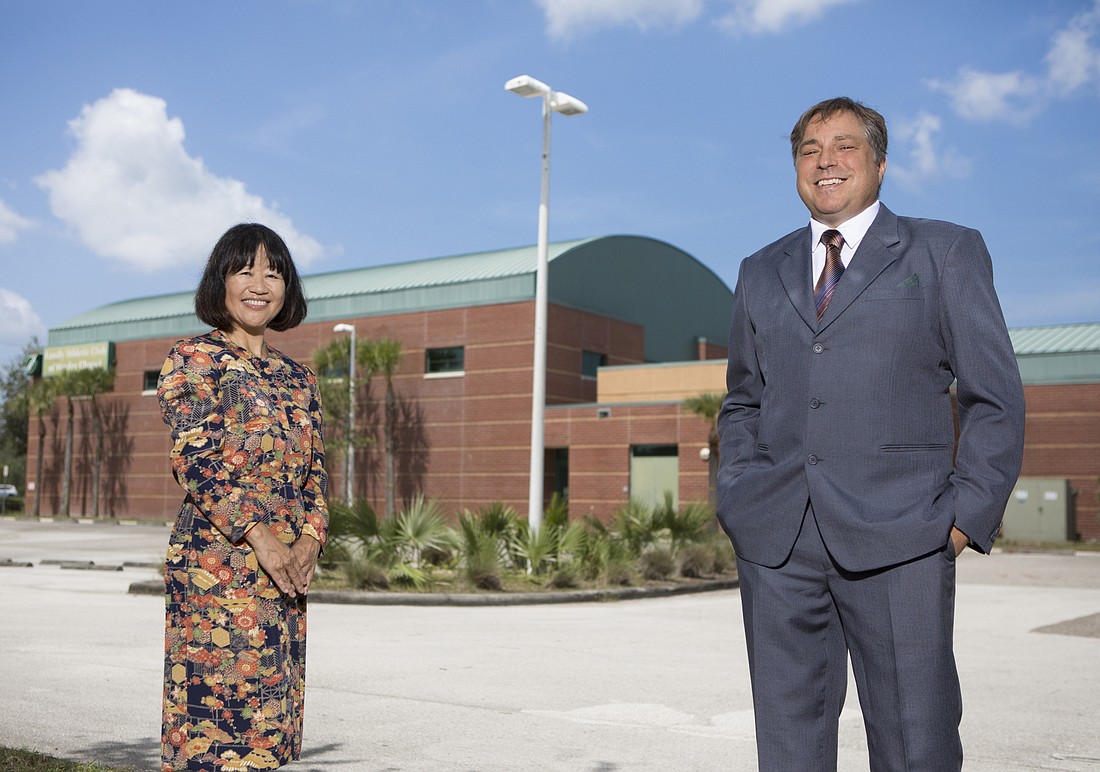- April 17, 2025
-
-
Loading

Loading

From formal tea ceremonies to wild nights of drinking and karaoke, business gets done a little differently in Japan.
Orlando-based Pierce Florida Realty LLC found that out the hard way when one of its commercial property listings in the Tampa Bay area languished on the market for nearly two years before it sold. The buyer? A group of investors led by Tampa strip club and craft brewery icon Joe Redner.
"In Japan, at the beginning [of a negotiation process], they are very, very polite. It can take time to get to the point, compared to Western culture.” Sumiko Kuboi, Pierce Florida Realty LLC agent
At 2029 Arrowgrass Drive in Wesley Chapel, the 32,000-square-foot facility, the Sports + Field Family Athletic & Fitness Club, was built in 2005 as an exercise and sports training facility. The owner, Tatsuya Okawa, runs a Miami-based company called Strong-S USA Inc. but resides in Japan. Sports + Field shuttered in 2015, and Okawa put it up for sale, asking $4.2 million for the 3.15-acre property.
“The client was pretty frustrated,” says Sumiko Kuboi, the Pierce agent who represented Okawa. “He wanted a consultation in Japanese, and at a certain point he said: ‘I’ve had enough. I want to get this sold.’ And it was not happening.”
Kuboi, 57, is from Japan and based in St. Petersburg. She and her husband, Marco Lerra, also a Pierce agent, were introduced to Okawa via Mayumi Todd, a Miami CPA who handles Japanese and other international clients.
Initially brought on in a consulting role, Kuboi seized the opportunity to represent Okawa when his contract with a previous agent expired. Her experience with the listing highlights the importance of cultural aptitude when doing high-stakes business with international investors, many of whom, Todd says, are keen to wheel and deal in the red-hot Tampa Bay real estate market.
Kuboi says it’s vital to understand the “culture of politeness” that reigns supreme in Japan. When they engage in business dealings, Japanese people can be overly formal, deliberative and circumspect compared to their American counterparts. “Renraku,” a Japanese word that translates, roughly, to “contact” or “communication,” governs the negotiation process.
“Confirmation, reconfirmation, confirmation, reconfirmation,” Kuboi says. “You hear it all the time: ‘Let’s renraku this.’ Sometimes you are reconfirming the reconfirmation.”
Kuboi says the agent who preceded her with the listing also struggled to communicate with Okawa because of the more than 12-hour time zone gap with Japan. Kuboi, however, made the effort to pass on information at times when it would be received immediately, often staying up until midnight or later so she could reach Okawa during business hours in Japan.
“It’s a big time difference to overcome,” she says.
On the few occasions Okawa traveled to Florida for meetings, Kuboi made sure tea was served and honorifics such as “Mr.,” “Miss” and “Mrs.” were used — tactics, she says, are key to starting a discussion the right way.
“In Japan, at the beginning [of a negotiation process], they are very, very polite,” Kuboi says. “It can take time to get to the point, compared to Western culture. And it’s not just the culture. The language itself can be polite to the extent that you can’t just come out and say something.”
Kuboi says business deals take time to coalesce in Japan, particularly in real estate, where title companies are not involved, and money changes hands directly. “At the closing, everyone comes to the same room to sign," she says. "There’s no escrow, which means there’s not as much fraud, either.”
Because of that difference, Todd adds, “Japanese [sellers] like to take a lot of steps to close a sale. They need to trust the buyer and the agent. They want to know everything. They have many formal steps and customs.”
Some of those customs include extracurricular activities, such as golf, karaoke and sake — lots of sake. “This particular group didn’t do a lot of drinking,” Kuboi says. “But in the past we’ve found ourselves in a karaoke bar. But it’s fun; it’s part of doing business.”
The group headed by Redner — the Tampa businessman who owns Mons Venus strip club and helped start Cigar City Brewing and Brew Bus Brewing before becoming an advocate for marijuana legalization — was represented by Joe Seidle of The Krauss Organization. They beat out two other offers and paid $3.9 million for the Sports + Field property.
Redner and Brew Bus partners Toni Derby and her son, Anthony Derby, aim to turn the former sports facility into a microbrewery, restaurant and event space. Kuboi says the group’s solid track record and clear usage plan, which calls for an $8.7 million investment in the property, appealed to Okawa.
“It wasn’t about the money, really,” Kuboi says. “[Redner] won on merit.”